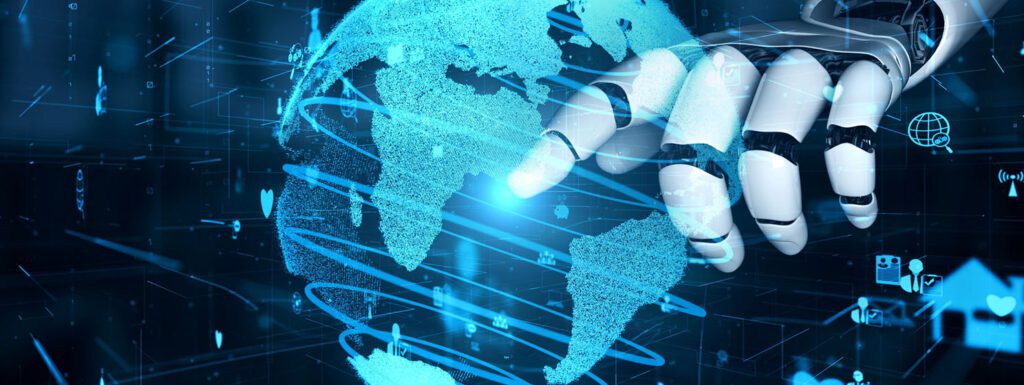China, one of the world’s hotspots for artificial intelligence (AI), hosted the Wuhan Internet Conference (WIC) Summit, bringing together 20,000 people for a huge exhibition and a line-up of keynote speakers in the future technological space.
The event, which took place from November 19 to 22, had the theme “Embracing a People-Centered, AI-Driven Digital Future for Good – Building a Community with a Shared Future in Cyberspace,» attracting government officials, international organizations, businesses, research institutes and members of civil society.
Latif Ladid, Chairman of the IPv6 Forum, was invited to attend the Wuhan Summit as a keynote speaker to discuss the role of IPv6 in enhancing AI initiatives. At CoinGeek, we were able to catch up with Ladid after his experience in Wuhan to get a sense of the ideas he was able to share with the 20,000 participants.
To set the stage, Ladid addressed the biggest risks associated with AI today, a critical area that everyone needs to understand, given the breakneck speed of AI developments.
“The biggest risks arising from AI currently include security vulnerabilities, manipulation and misinformation, serious loss of privacy, intellectual job losses after massive workforce losses due to robots, loss of accountability and future risks yet to be discovered with larger scale deployments,” he said.
“There is a serious need for research accompanied by sensible but careful dialogue on ethics, global governance and regulation,” Ladid added.
He explained that global AI governance is a widely debated topic, like Internet governance. However, when it comes to AI, the debate will be much longer and broader, involving many more stakeholders in defining consistent terminology.
From a more technological point of view, the combination of IPv6 and blockchain will play a crucial role in this rapidly evolving world of AI. IPv6 will have a “huge impact on AI,” according to Ladid and will control algorithms by providing secure end-to-end connectivity and supporting new technologies such as blockchain.
“Blockchain plays an important role in improving AI by addressing key challenges related to data integrity, security, privacy and transparency,” explained Ladid.
“AI models require high-quality verified data. The immutable ledger of blockchain ensures data integrity by preventing unauthorized changes, thereby providing AI models with more reliable inputs,” he said.
Blockchain can also enable “privacy-preserving AI” through federated learning, meaning models are trained on decentralized data without exposing sensitive information. Users can retain ownership of their data through blockchain, allowing them to control which AI systems use their data and receive compensation for that use via micropayments.
Understanding how AI models manage to make decisions is another area where blockchain will help, thanks to its transparent ledger where updates and changes to AI models can be recorded and audited. Blockchain can also facilitate decentralized marketplaces where data, AI models, and computing resources can be securely shared or sold.
“Smart contracts can automate transactions between AI systems, ensuring trustless interactions. For example, AI-based IoT devices can use blockchain to make secure and autonomous decisions based on predefined rules,” explained Ladid.
Some example use cases for the combination of AI, IPv6 and blockchain include secure sharing of medical data for AI-based diagnostics, supply chain transparency and efficiency and AI models using blockchain for fraud detection and secure transactions, according to Ladid.
Looking ahead to 2025, we can only expect a future technological explosion around the world, especially in China. Several related events are expected to take place in the region, including the upcoming Wuhan WIC, the Shanghai International Internet of Things Expo (IoTE), the Beijing International Robot Expo, and a dedicated IPv6 event organized by Ladid, during which blockchain will be a major topic. within it.
For artificial intelligence (AI) to operate within the law and thrive in the face of increasing challenges, it must integrate an enterprise blockchain system that ensures the quality and ownership of data capture, enabling it to protect data while also ensuring immutability. of data. Check out CoinGeek’s coverage on this emerging technology to find out more why enterprise blockchain will be the backbone of AI.
What to watch: Blockchain, IPv6, AI and 5G will pave the way for the new Internet
title=”YouTube Video Player” frameborder=”0″ allow=”accelerometer; autoplay; write to clipboard; encrypted media; gyroscope; picture-in-picture; web sharing” referrerpolicy=”strict-origin-when- cross-origin”allowfullscreen=””>

